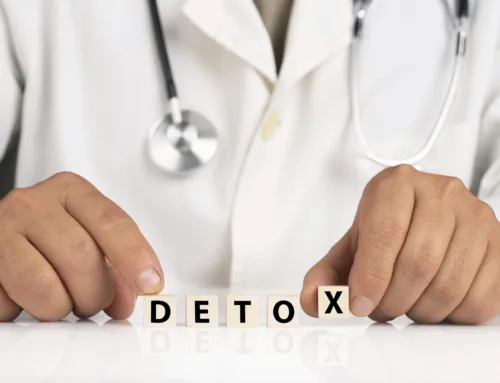How to Help Your Loved One in Detox
Choosing detox after living with active addiction is no easy task. It’s a brave, courageous and healing step towards recovery, but one that takes motivation, perseverance and support. While your loved one works through detox, you, as the sibling, parent, cousin, etc. have the unique opportunity to provide support in a way only a family member could.
How to support your family member in detox
Each individual’s experience with addiction and detox is different; therefore, their needs are also going to be different. While you know the specific needs of your loved one the best, there are some general things you can do to keep both your loved one, and yourself, motivated and strengthened during detox.
Create a supportive living environment
During detox and treatment, your loved one will learn more about triggers—the things which spark a desire to return to old, bad habits. Triggers are different for each person, but may include people, places or items (like prescription bottles, alcohol or needles) tied to the addiction.
Removing these items from your house, such as throwing out all the alcohol or placing prescription medications in locked cabinets, can be a good first step in creating a supportive living environment.
Additionally, when you are all back in the home, keep in mind the vulnerable state of mind your loved one experiences during early recovery stages and do your best to keep the home a place of peace and support instead of stress, tension or anxiety.
Be open to family counseling
While addiction severely affects the life of the one battling substance abuse, it also affects your life, the life of the family. Seeing a relative struggle is never easy, and while you may want to support them as much as possible during recovery, it might be challenging to be fully present to them.
If you feel like you’ve been impacted in negative ways by their addiction, or even if you simply want professional support and guidance as you walk with your loved one, consider seeing a family therapist or partaking in a support group for families with a member in detox.
Help with distractions from cravings
One of the most challenging aspects of detox is the intense cravings for the substance they’re trying to stay away from. During the initial stages of detox, cravings can be extremely severe, but as the individual grows stronger in waiting for the craving to subside, the severity and frequency of cravings will begin to diminish.
Your job, as a relative, is to help your loved one ride out the wave with healthy distractions. Going to a rock climbing gym, watching a movie or football game, playing miniature golf, building a bookshelf—all these things can help distract your loved one until the worst of the craving subsides.
Exercise patience and be aware of expectations
It’s so exciting when you discover that your loved one is ready to enter detox, but it’s crucial to keep in mind that they have a long journey of recovery ahead of them. While you want the best for them, including a speedy and painless recovery process, recovery is actually a time when many setbacks happen.
For the health of your loved one (and yourself), it is helpful to keep those expectations in check and to note that while they are trying their hardest to recover, some days are better than others. Your patience and flexible expectations during this time can be more supportive than anything as it acknowledges their struggle and yet still wishes the best for them even so.
Take care of yourself, too
If you’re just giving and giving and giving of yourself without receiving, you pretty soon won’t have anything left to give. For this reason, it’s important, when you’re supporting a loved one through recovery, to also take care of yourself. Make sure you’re setting aside time to exercise, cook healthy food, sleep, see your friends and enjoy your hobbies.
This will restore your energy and give you strength to continue playing a supportive role in your loved one’s detox.
Keep toxicity and drama nonexistent
This can be a tough time for everyone, but it’s important to keep little dramas and toxic personalities out of it. Your loved one doesn’t need to deal with family issues in the midst of their detox, they have enough going on. Therefore, make sure the people they’re surrounded by are there to help and serve.
Be present in the way they need it most
You know your loved one better than most, and therefore have the ability to be present to them in a unique way. Talk with them about the ways they’d feel most supported – maybe it’s helping them find a detox support group for post-detox care; maybe it’s being present during therapy sessions, or all partaking in family therapy; maybe it’s just being physically present.
No matter what it is, the care and support you show during this time can have a strong, positive impact on the success of your loved one’s recovery.
For additional support
Looking for a detox facility to suggest to your loved one? Trying to find aftercare or supportive family services? Freedom Detox is here to help. Call our offices anytime for more information at 800-475-2312.





